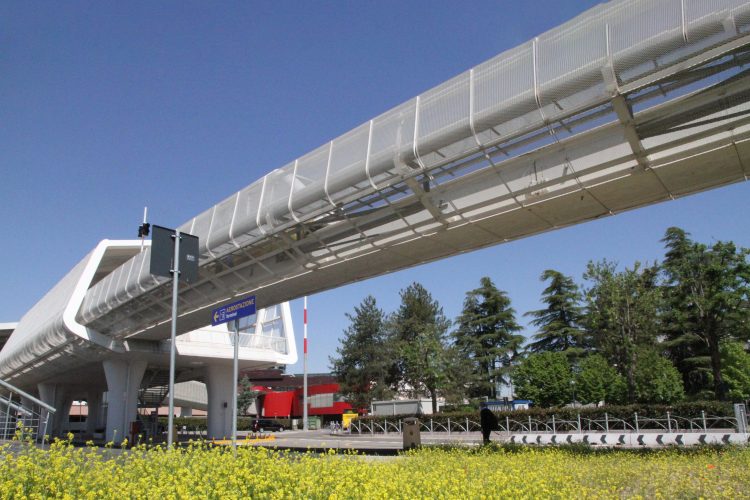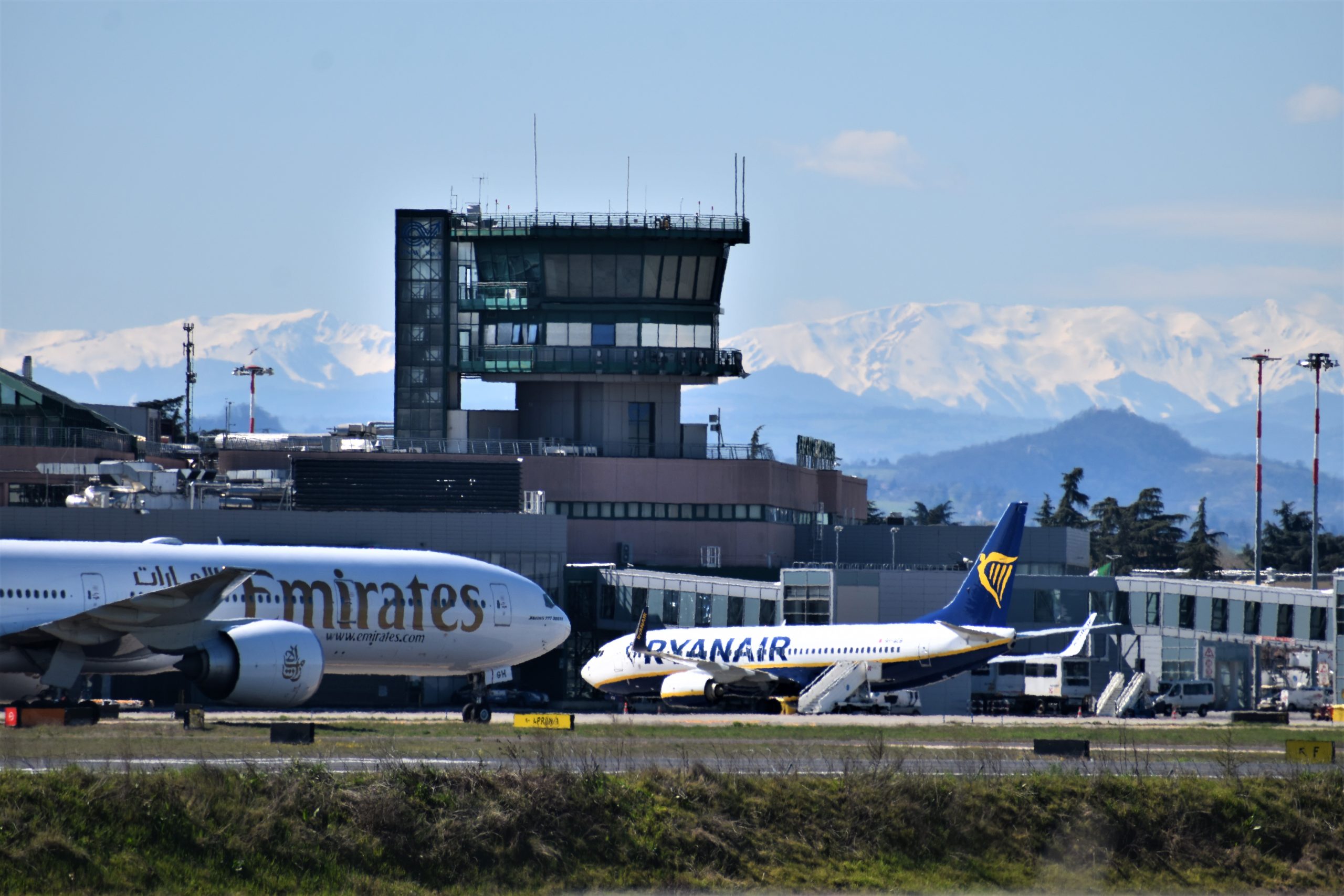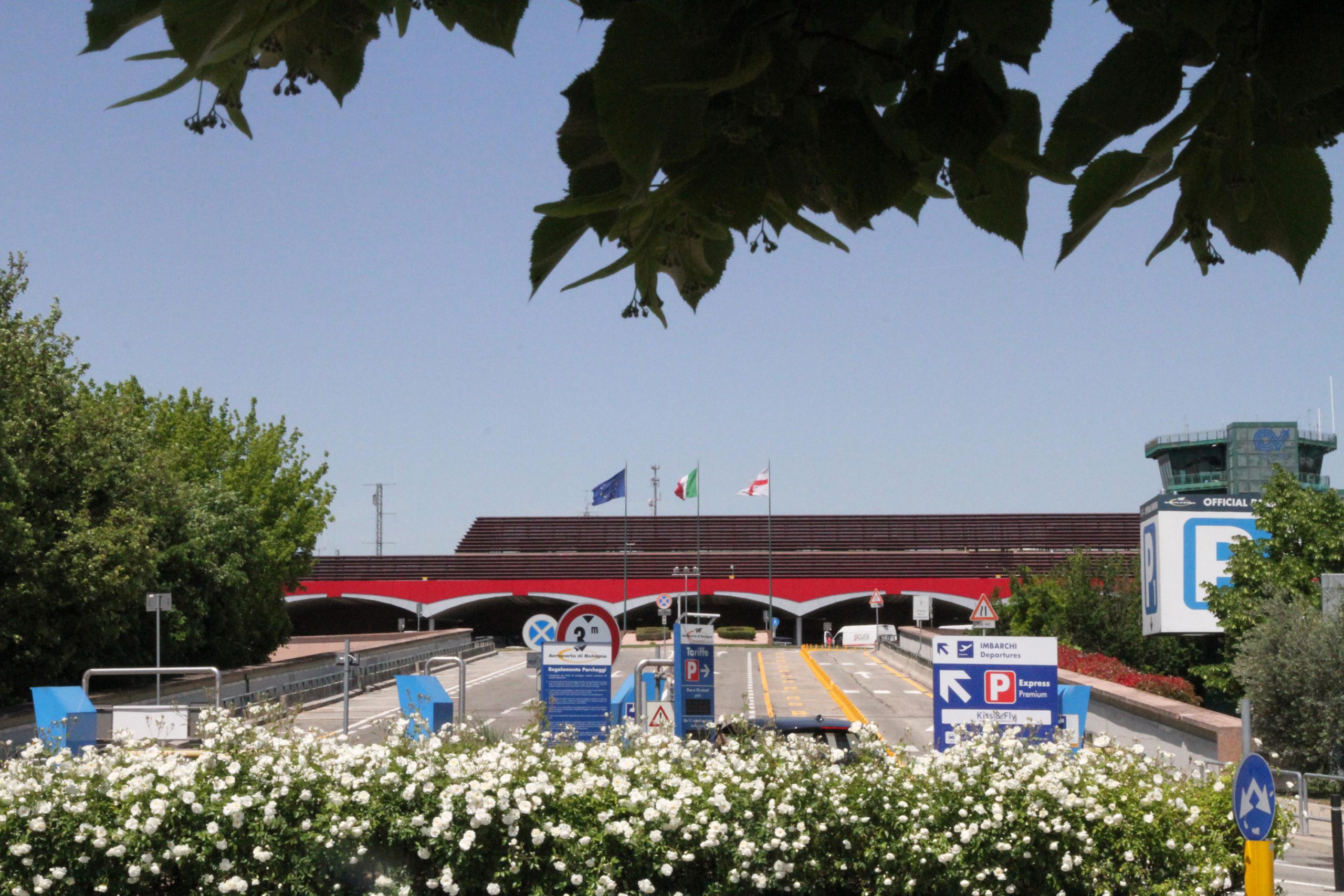Integrating sustainability into business strategy at Bologna Airport
- Like
- Digg
- Del
- Tumblr
- VKontakte
- Buffer
- Love This
- Odnoklassniki
- Meneame
- Blogger
- Amazon
- Yahoo Mail
- Gmail
- AOL
- Newsvine
- HackerNews
- Evernote
- MySpace
- Mail.ru
- Viadeo
- Line
- Comments
- Yummly
- SMS
- Viber
- Telegram
- Subscribe
- Skype
- Facebook Messenger
- Kakao
- LiveJournal
- Yammer
- Edgar
- Fintel
- Mix
- Instapaper
- Copy Link
Posted: 18 September 2023 | Giorgia Colella, Nazareno Ventola | No comments yet
For International Airport Review’s Issue 2 2023, Nazareno Ventola, CEO & MD and Giorgia Colella, Programme Management and Transformation Office at Aeroporto Guglielmo Marconi di Bologna, provided a case study on the airport’s approach to operating a transition towards a sustainable future with the objective to promote collaboration and embed ESG targets into business strategy.


Bologna Airport's sustainability and business strategy.
The world as a whole emits around 50 billion tonnes of greenhouse gases each year: transportation accounts for 16.2% of total emissions and the aviation industry specifically for 2%. Nevertheless, the last updated estimates forecast that air traffic will continue to grow at a minimum average rate of 1.2% per annum up to 20502. This scenario inevitably calls for co-ordinated industry action to allow sustainable growth for aviation, leveraging on both technological development and operational improvement. Tackling the environmental challenge has been on the sector agenda for quite some time and airports can play a prominent role as a catalyst to speed up this process.
Bologna Airport’s commitment
Bologna Airport Sustainability Commitment started in the early 2000s with specific actions including mitigation of airport impacts on the surrounding areas and a series of investments in renewable energies. The airport has also joined the Airport Carbon Accreditation Scheme and published its first Sustainability Report on a voluntary basis in 2009.
Following COVID-19, companies have had the chance to deeply rethink their strategies, pushing towards the transition to a more sustainable model in terms of collective wellbeing, flexibility and alignment with environmental challenges. This has also been the case at Bologna Airport.
In fact, to grant a clear governance of sustainability topics, in the first quarter of 2021, the company set up an internal Sustainability Committee responsible to draft a strategy and implement a system of key performance indicators (KPI) to monitor the delivery of arrange of projects. Bologna Airport has also embarked on a journey to involve suppliers, commercial partners and stakeholders in its sustainability initiatives.
Bologna Airport has also embarked on a journey to involve suppliers, commercial partners and stakeholders in its sustainability initiatives.
For what concerns environmental sustainability, the company has developed a Decarbonisation Plan with the objective to reduce its carbon footprint through investment in renewable energy and electrification technologies. In this context, particular relevance is given to the topic of sustainable mobility to access the airport, to the reduction and correct disposal of waste and to the mitigation of the airport impact on the surrounding neighbourhood.
No real sustainability strategy is possible without addressing the social dimension. Social sustainability encompasses all the topics related to health and safety measures, flexible working hours for employees, gender equality and inclusion, employee engagement and economic growth.


Bologna airport airside. CREDIT: BOLOGNA AIRPORT
The recipe for success: Integrating sustainability into business strategy. The real turning point to address the sustainability challenge consists of integrating sustainability objectives into business strategy and execution. The SDG Compass, a guide for business action developed by the Global Reporting Initiative, the United Nations Global Compact and the World Business Council for Sustainable Development, provides a clear framework to further push into this direction3.
Embed sustainability across all functions
When sustainability action is delegated to a fully dedicated team, the organisation can surely gain focus, but it will probably lose the strength to deeply penetrate all departments of the organisation. At Bologna Airport, we have therefore decided to create a cross-functional middle-management Sustainability Committee composed of employees with different backgrounds and belonging to different business units. This choice has proven right since each member has acted as a “green ambassador” within its unit, promoting the Committee’s initiatives and bringing specific know-how to the group. Individual accountability of group members has fostered great enthusiasm and team spirit and led to a good performance.
Sustainability action must be supported by strong competences and knowledge of technical and legislative aspects. Training is essential but it needs to be adapted to the right target. At our airport, we have delivered a series of events with experts from the field to raise awareness on the topic of sustainability. Our HR department has distributed online ‘learning pills’ addressed to all employees, to deep dive into specific topics with a ‘light’ approach. For the colleagues who are highly invested in the implementation of the Sustainability Plan, the company has also created a dedicated and complete learning path including a final accreditation phase.
Anchoring sustainability goals within the business
Active buy-in and involvement of CEO and top management is key to driving any kind of organisational transformation. It is therefore essential to anchor sustainability within the company’s long-term strategy. A good practice consists in integrating sustainability goals into management remuneration schemes. At Bologna Airport, the Board of Directors has assigned individual objectives linked to specific sustainability milestones to executives. A company objective related to emission reduction to be achieved through collective effort has also been set.
Engaging in partnerships
The shift towards a more sustainable world entails a strong change to consolidated habits and culture and cannot be successful when conducted in isolation. Airports function like ‘small cities’ and, given the nature of the business, are strongly involved in multiple collaborations with stakeholders operating within their infrastructure boundaries. Establishing positive and strong partnership, therefore, is key to achieve the ever more challenging sustainability objectives in the aviation sector.


CREDIT: BOLOGNA AIRPORT
Following the construction of the People Mover monorail that connects Bologna Airport to the city central high-speed railway station in only seven minutes, the airport has intensively worked on a pioneering multi-stakeholder agreement with local transport operators and with the main Italian railway operator. As a result, an integrated ticket to commute from home to work at an accessible price for all airport employees and airport community was created, which includes a bundle of services that can be selected by the user. It is, therefore, possible to travel to the airport using a combination of regional train, electric car sharing and monorail service just with one ticket. The next objective could entail the extension of this model to passenger journeys, integrating for example train and flight tickets.
Conclusion
Collective industry effort combined with individual corporate initiatives unlock the potential of aviation to become increasingly sustainable. However, to these days, we still face some challenges as an industry: technological development of electric and hydrogen‑fuelled aircraft will need time to become a real alternative to traditional jet fuel; in the meantime, SAF seems to be the only viable solution available to reduce the aviation sector carbon footprint. Nevertheless, the availability of SAF is still low and a regulatory and financial framework needs to be created to facilitate and speed-up its adoption. The path to sustainability will be a bumpy road for the aviation industry, and there is no one-size-fits-all solution available.
Nevertheless, despite any individual situation and the size of the organisation, there seems to be no real choice on this matter, since everyone is called to active contribution. Having said that, airports can be in the driving seat of this industry transformation: the challenge is there to be taken.
About the authors


Giorgia Colella has been working at Bologna G. Marconi Airport within the Project Management Office since 2019. In 2021 she joined the Corporate Sustainability Committee and contributed to the set‑up of the Sustainability Plan.
Giorgia Colella graduated with honours in International Management at the University of Bologna; she previously studied at Edinburgh Napier University (UK) and Hochschule Osnabrück (DE).


He has been a Chair of the ACI (Airport Council International) Europe Economics Committee from 2012-2013 and a member of the Board of ACI Europe from 2014-2020. He is currently in the group of representatives for Europe on the ACI World Board.
Nazareno Ventola graduated with honours in Chemical Engineering from the University of Trieste. He has attended specific training courses at SDA Bocconi (Milan, Italy), MIT (Boston, USA), London Business School and University of Cranfield (UK).
Issue
Related topics
Economy, Intermodality, Operational efficiency, Social responsibility, Sustainability, Sustainable Aviation Fuel (SAF), Sustainable development


















